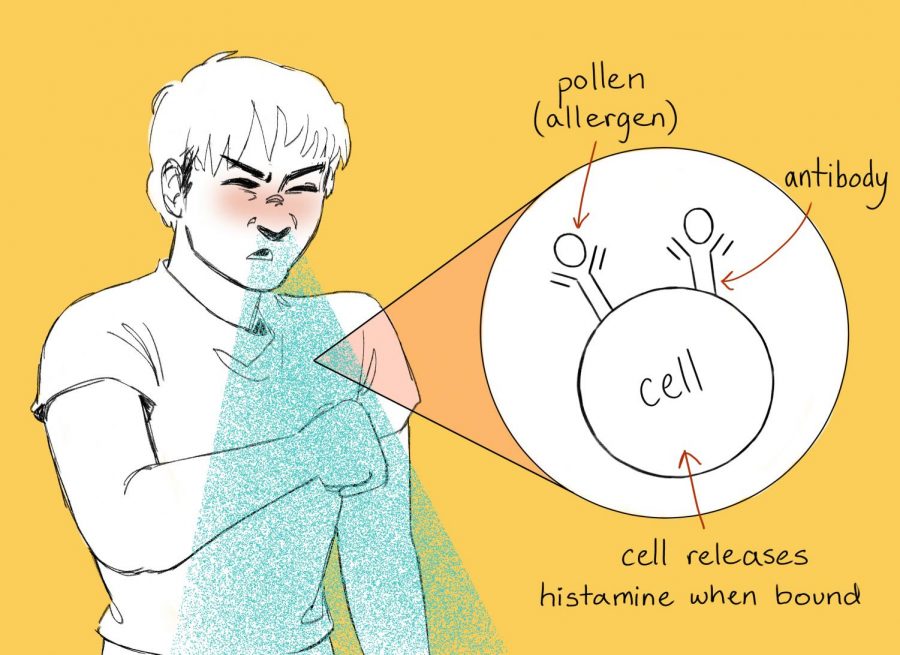Science Explained: How do allergies work?
Causes of certain allergies are still being researched, professor says
People who are exposed to more parasites in their childhood will likely have a lower chance of suffering from allergies. This is called hygiene hypothesis.
June 15, 2020
Seasonal-allergy sufferers are all familiar with the classic symptoms of watery eyes, runny nose and congestion that come with allergies.
The scientific cause for allergic reactions may actually lie in a defense against parasites, said Phil Mixter, clinical associate professor in WSU’s School of Molecular Biosciences.
The human body has a natural immune response that targets parasites, Mixter said, but in developed countries where parasites are not a threat, that response can be directed at things that are not actually life-threatening, such as pollen, cat dander or peanuts.
“Your immune system is doing exactly what it should be doing to protect you, but it’s misdirected,” Mixter said.
People who are exposed to more parasites during childhood will likely have a lower chance of suffering from allergies, he said. This is called the hygiene hypothesis.
What causes certain people to have allergies to different things is still being researched, Mixter said. Allergies are likely caused by a combination of things, including early exposure to substances and genetic predisposition.
“The joke I like to make,” he said, “is you should pick your parents carefully.”
Mixter said antibodies can detect certain antigens, also known as allergens, very accurately because they contain binding sites that match to the antigen.
When antibodies are activated by the presence of an antigen, they act as cell receptors, which then signal the release of chemical signals, including histamines, Mixter said.
The binding of histamines to other receptors on other cells causes the physiological symptoms that characterize an allergic reaction.
“It’s kind of like the fire alarm for your immune system,” Mixter said.
Following the binding of histamines, the human body will swell and produce fluid. These are important measures to counteract parasites, he said.
“That response is great if you’re swimming in the Nile River and you swallow water that contains parasites and your body wants to eject them,” Mixter said. “If I inhale cat dander, then all that fluid comes out of my head very quickly … it’s trying to flush out what it perceives to be a [parasite] in my upper respiratory tract.”
Mixter said many common allergy medicines generally work by blocking histamine receptors, which reduces the symptoms of an allergic reaction.
Science Explained is an article series that aims to describe popular science topics without technical jargon that can be confusing for non-science audiences. Each article will cite professors, researchers or experts at WSU, as well as available online research to explain science in a way that is understandable and interesting.
Emma Ledbetter is the author of Science Explained. She is a microbiology major and is going into her fifth semester working at The Daily Evergreen.










